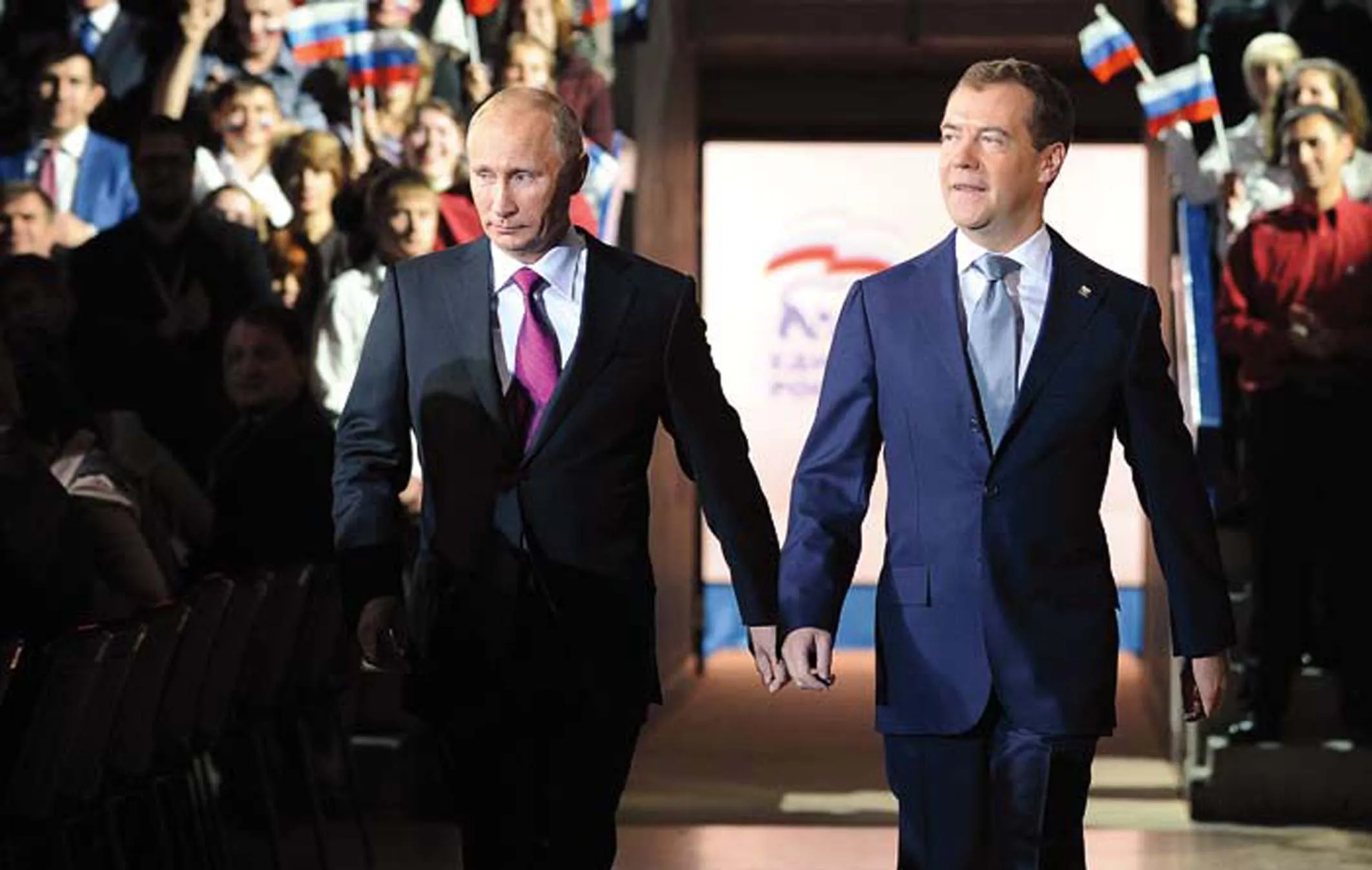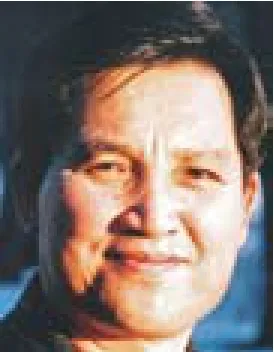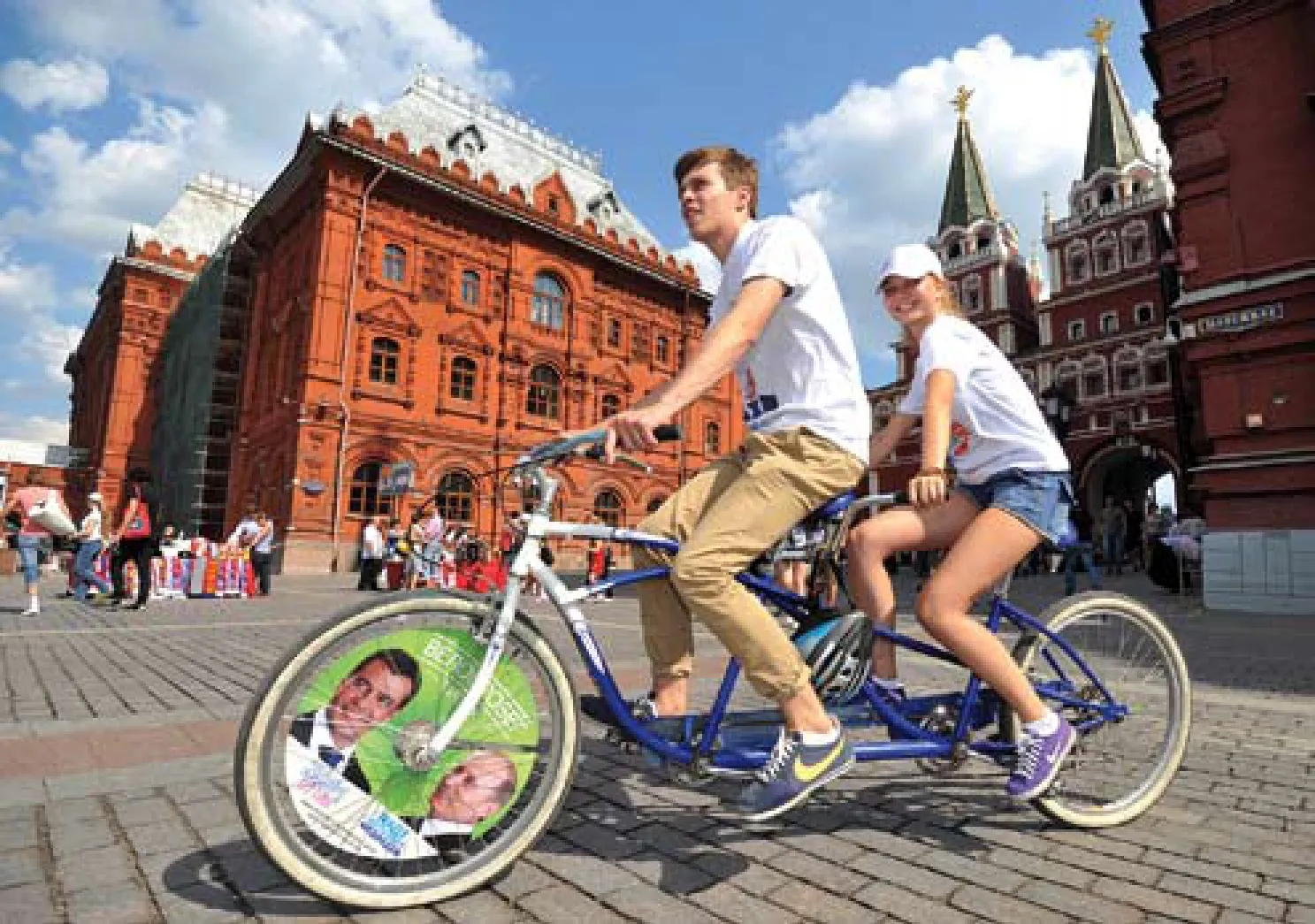The Return Of Putin
By ZHAO MINGWEN
The Return Of Putin
By ZHAO MINGWEN

MEDVEDEV-PUTIN TEAM: Russian President Dmitry Medvedev (right) and Prime Minister Vladimir Putin make a joint appearance at a conference of Russia’s ruling party in Moscow on September 24
Vladimir Putin is sure to win the Russian presidential election next year

At a meeting of the ruling United Russia party on September 24,Russian Prime Minister Vladimir Putin accepted a proposal by President Dmitry Medvedev to compete in next year’s presidential election. The question about whether or not Putin will run for president fi nally has an answer.
Putin said there is a “comradely union”between him and Medvedev. They had“agreed long ago on who will do what,” and what they have proposed at the congress was a “well-thought-out” decision, he said.
The power tandem between the two politicians has proven effective, as it has guaranteed Russia’s overall political and social stability as well as economic growth. It is mainly because of Russia’s domestic political rules that they waited to announce the fi nal presidential candidate.
Then President Putin handpicked Medvedev as his successor in 2008. Russia’s Constitution states that a Russian president cannot seek a third term in a row. To make sure he could be the president once again and stay at the position for a longer period, Putin made extensive preparations.
Planning ahead
When Putin started his second term in 2004, he hinted that he had his eye on another term. If Russia’s Constitution didn’t forbid three successive terms, Putin would not have chosen Medvedev as the next president. Putin became prime minister after his second term as president, and he has continued to set Russia’s domestic and foreign policies, even though Medvedev serves as the head of state.With this tactic, Putin continues to stay at the helm of country.
Medvedev is a Putin ally. His personal characteristics and administrative style are quite different to those of Putin’s. But he is a loyal supporter and implementer of Putin’s policies, known as a mild reformer on Putin’s team. All these made Medvedev Putin’s ideal successor. Before the presidential election in 2008, Putin declared that he would win the election together with Medvedev, hinting that Medvedev’s success was equal to Putin’s holding onto power.
Putin also has kept Medvedev on track by setting up a cooperative mechanism between them. Unlike his predecessor Boris Yeltsin,Putin didn’t quit all political titles. Instead,he became prime minister and set up the Medvedev-Putin power tandem. All Putin’s confidants stayed in the administration,preparing for a future presidential election.Under the Medvedev-Putin cooperative mechanism, Russian people continued to associate top state power with Putin.
Moreover, Putin started to pave his way to the presidency by amending the constitution. Soon after assuming the presidency,Medvedev submitted a constitutional amendment to the State Duma, the lower house of Russia’s legislature, suggesting extending the presidential term from four to six years. The amendment also stated that the longer term will take effect beginning with the next presidential term. Then, there was a rumor that Medvedev might resign within a year, so the country might have a presidential election at an earlier date. The rumor re fl ected the desire of the Russian elite for Putin’s reelection.
After the financial crisis broke out in 2008, Russia’s leadership adjusted the tradi-tional division of responsibilities between the president and prime minister. The Russian Government’s usual practice was for the president to be responsible for political affairs while the prime minister focused on the economy. Now Medvedev and Putin are sharing the responsibilities and risks of managing the country’s economy.
Obstacles
Despite the Russian Government’s poor performance in addressing the financial crisis, Putin’s personal popularity has hardly been damaged
Putin, who left the presidency at the peak of his power, has played a central role in Russia’s leadership during Medvedev’s administration. But since the political situation has changed a lot in the last three years, Putin has to deal with grave challenges in the runup to the 2012 presidential election.
Dissatisfaction about Russia’s current social conditions is on the rise. Some people felt so disappointed about Putin’s reelection that they declared they would not vote or planned for a protest vote in March 2012.
The anti-Putin movement is growing.Anti-government demonstrations have broken out in many Russian cities, including Moscow, since 2008, calling for a Russia without Putin. The number of protesters at large demonstrations exceeded 10,000.
Worse still, the ruling party’s popularity is decreasing sharply. Votes for United Russia were below 50 percent in many regional elections last year. Even Putin’s advisors predicted people’s support for Medvedev, Putin and United Russia would“disastrously” slide in the next eight months.
Some people and social groups are calling for reforming the existing electoral system in Russia. They have said if the current system is not changed, the international community might refuse to recognize the election result.Then, the legitimacy of the new government would be questioned, and there might be widespread protests in the country.
Western countries are exerting pressure on Russia about Putin’s participation in the presidential election. U.S. Vice President Joe Biden said he doesn’t support Putin running for president during his visit to Russia in March.The Washington Postpointed out that if Putin is reelected, foreign investors could be scared away due to fears of corruption and lack of a sense of safety, coupled with Putin’s perceived anti-Western stance.
Advantages
In spite of all these obstacles, Putin still has many unmatched advantages for being Russian president again.
Despite the Russian Government’s poor performance in addressing the fi nancial crisis,Putin’s personal charisma has hardly been damaged. He has remained a symbol for Russia’s peace and stability. Russians still count on Putin to help maintain public security in Russia with his tough work style. They tend to put the blame for economic and social problems on oligarchies, corrupt of fi cials and police with no integrity, rather than the prime minister himself. In February, Putin’s popularity rating stood at 73 percent.
Medvedev has tried his best to help Putin back to the presidency. During the past three years, he has not only discussed all major issues with Putin, but also stayed with Putin’s team instead of founding his own. He didn’t steal Putin’s thunder during his administration, either. Medvedev has also kept quiet about reelection, bringing down Russians’ expectations for him to seek a second term.
The key for Putin is that he will not have a competitor who can pose a real threat to him in the coming presidential election. Other parties in Russia are not able to pick a candidate that can challenge Putin.
Putin and his team are also well prepared.United Russia forged an alliance with the Federation of Independent Trade Unions of Russia to support Putin’s presidential bid.Putin founded the All-Russia People’s Front in May to call on different sectors of society to vote for him. All these are aimed at eliminating possible obstacles and preparing for the 2012 presidential election.
Putin stepped down at the height of his political career in 2008 because of constitutional limits. But his ambition of leading his country to prosperity has never faded away.People have reason to believe that Putin will create another miracle and help bring a strong and prosperous Russia back to the world stage.
The author is director of the Center for China’s Peripheral Security Studies at the China Institute of International Studies

TANDEM SUPPORTERS:Supporters of Russian President Dmitry Medvedev and Prime Minister Vladimir Putin ride a tandem decorated with their pictures during a rally near the Kremlin on August 8

